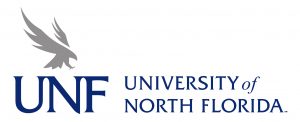For advanced graduate students. Principles of management as they apply to information technology enterprises. Emphasis on the unique requirements of software projects and the personnel involved in them examined in the context of the current information technology workplace.
Students will use current technologies to develop Internet and web-based applications. The topics to be covered include clients and server-side components for the WWW to facilitate client-server communication, web services, and an introduction to Internet security. Students will extend course topics via programming assignments, library assignments and other assigned activities.
This course is intended to provide students an overview of game development. Topics include the game development life cycle, an overview of the game industry, and an emphasis on game design and programming which includes some of the mathematics, physics, and artificial intelligence used to create games. Students practice these concepts in several assignments using Torque/Torque script. The course will culminate with the implementation of a complete game.
As a continuation of OOP programming, this course addresses linear and non-linear data structures and techniques. Topics include stacks, queues, trees, indexing techniques, multikey structures, recursion, sorting and searching, hashing, and hash overflow techniques.
This course focuses on business-oriented file processing and storage techniques, including tables, searches, and advanced file organization techniques. Assignments include programming projects to utilize concepts and develop programming skills.
This course provides an introduction to the fundamentals of visual programming as well as procedural language structure and capabilities. Students learn about visual programming development, including problem definition, problem solving and algorithms, procedures, controls, arrays, structures, coding, visual interface design, testing, and debugging.
This course introduces the principles and practices of object oriented (OO) programming. Topics include user interface and problem data classes; class versus instance properties and methods; abstraction; encapsulation; inheritance and multiple inheritance; polymorphism; software design techniques; and problem solving. The concepts are utilized in numerous programming projects.
This course introduces students to the fundamentals of structured programming as well as language structure and capabilities. Students learn about program development, including program definition, pseudocode, flowcharting, coding, testing and debugging. To practice programming skills, students develop COBOL programs to solve “real-world” problems.
Introduction to and use of browsers including helpers and plug-ins; html programming, including forms, image maps, and CGI scripts; production of graphics for the WEB; design of home pages.
Familiarity with Windows or Macintosh environment helpful. Principles, methods, and tools for the design and development of multimedia applications (incorporation of sound, animation, still images, hypertext and video in computing technology); authoring languages; multimedia technology hardware and trends.
This course provides an introduction to the fundamentals of personal computing for business majors and other non-computer science majors. Topics include the Windows operating system, word processing, spreadsheets, database, presentation aids, internet, e-mail and related areas.
Introduction to the fundamentals of personal computing and commonly used software applications for a pc. Includes practical exercises using popular application software packages.
